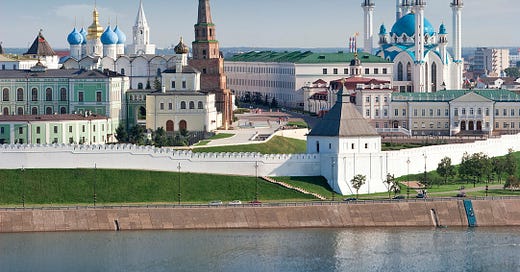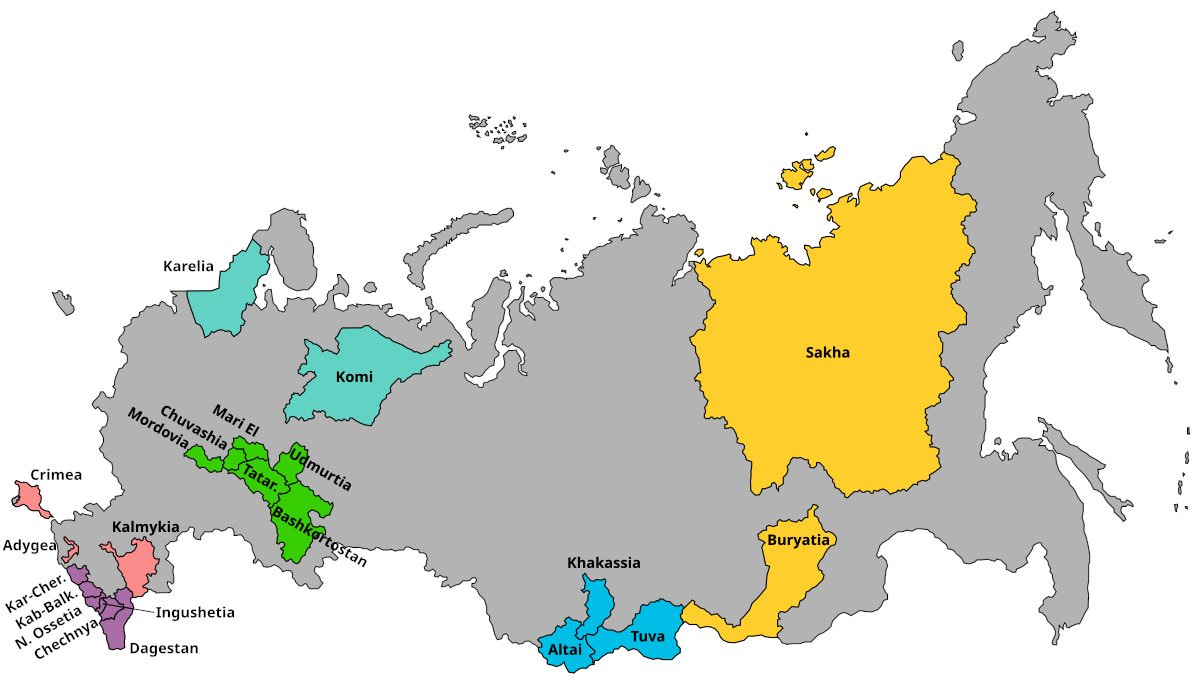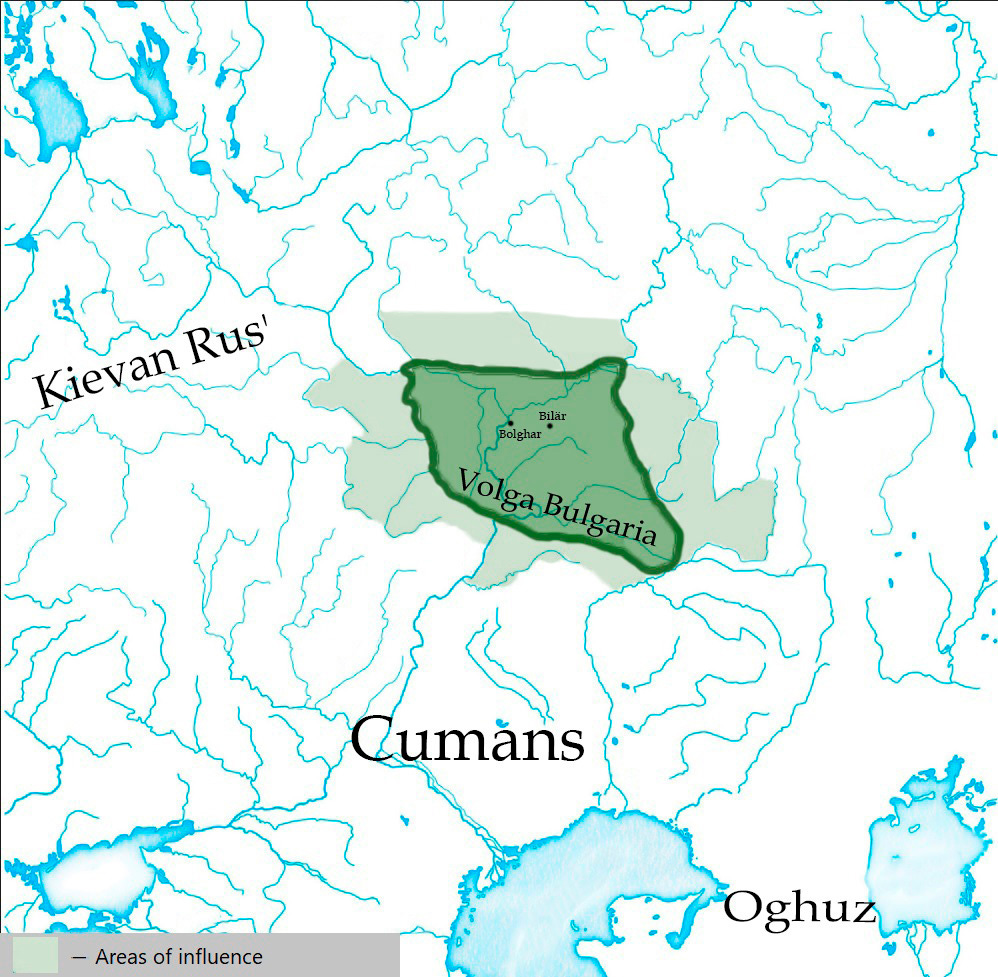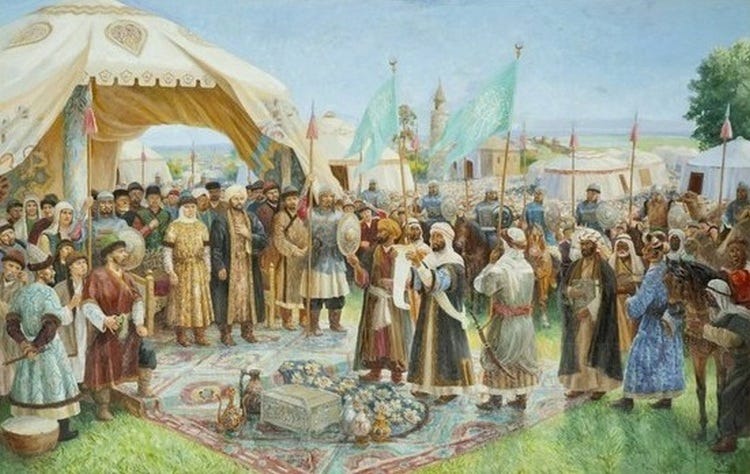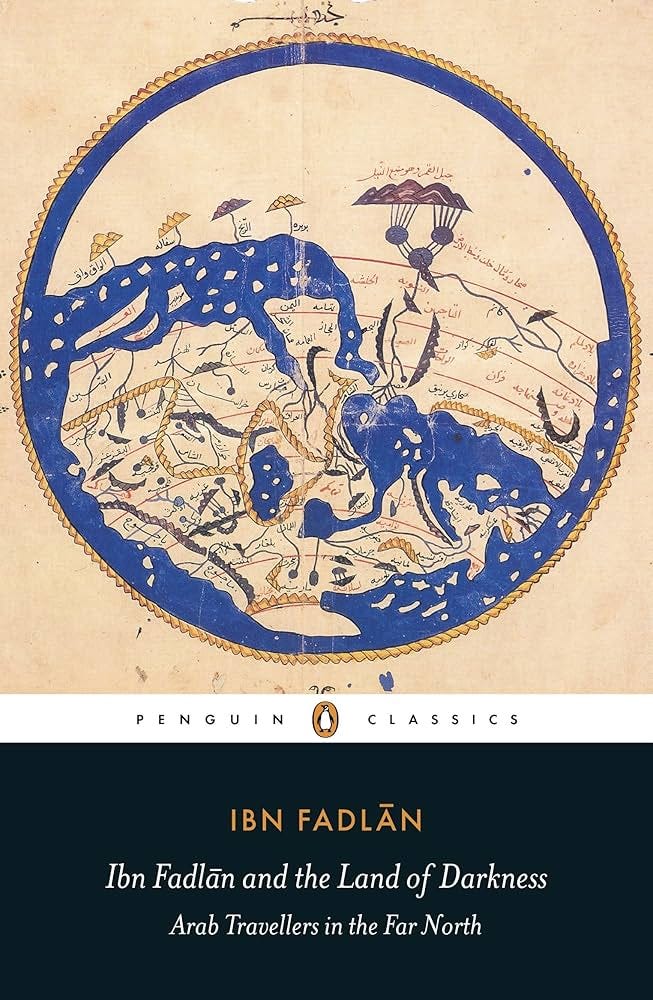Tatarstan is a large and wealthy ethnic republic located, in the very middle of Russia. While being culturally and institutionally distinctive, it is not really peripheral. It sits in a few kilometres from the very population centre of Russia 🧵
While Tatarstan does not sit in the centre of Russia geography-wise, it does so demography-wise. The Russian centre of population (red star), located somewhere in southwest Udmurtia, is literally in a walking distance from the Tatarstani border.
In this regard, Tatarstan defies the common Imperial Core vs Ethnic Periphery dichotomy. Being ethnic, it is not peripheral.
It is sitting in the very population centre of Russia.
This seems to be a somewhat uncommon situation. If you take a look at the Russian administrative map, you will notice that most ethnic republics (coloured) occupy a peripheral position. The main exception are republics of the Volga-Ural region (green), located in the middle of Russia & surrounded by the Slavic sea.
How did that happen?
Short answer:
Since 1500, the Duchy of Muscovy (purple) has been expanding eastward. While its expansion swept away pretty much all societies between the purple area and the Pacific, the Middle Volga area was not swept away to the same degree.
Long answer will take more time.
In the first millennium CE, the Middle Volga was populated by many different tribes. Finnic, Ugric, Turkic. Westward migrations of Asian tribes added even more diversity to the region. Fore example, some of those Magyars who did not make it to Pannonia settled in what is now Bashkortostan.
In the 8th c. new migrants came. The Bulgars. These were the Turkic nomads leaving north of the Black Sea. Once the Old Great Bulgaria of Khan Kubrat was destroyed by the Khazars, some Bulgars fled southwest to the Danube, establishing the later Slavicized Danube Bulgaria. Others migrated northeast, to Volga.
This created two separate Bulgarias, far away from each other.
Those Bulgars who fled northeast created the dominant polity in the Middle Volga, that we now retrospectively know as Volga Bulgaria. We should not imagine it as a nation state. Rather as a loose, heterogenous confederation of tribes, Bulgars being the dominant tribe of all.
In 922, the Bulgar king converted to Islam. An Abbasid envoy Ibn Fadlan who travelled all the way from Baghdad for the formal ceremony left an informative memoirs covering his journey & an account of the local ways and customs.
And so, the Islamic civilisation on Volga began.
Ibn Fadlan’s memoirs serve as a highly educative source on the Medieval Eastern Europe. Travelling all the way up to Bulgaria, he left descriptions of various northern peoples he met along the way, including the Rus. This gives us a snapshot into the river Viking society half a century before their conversion to Christianity.
Keep reading with a 7-day free trial
Subscribe to kamilkazani to keep reading this post and get 7 days of free access to the full post archives.
